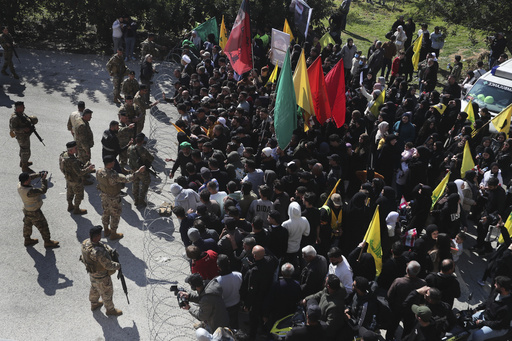
BEIRUT — Hezbollah has confirmed that the funeral for its long-term leader, Hassan Nasrallah, will take place on February 23. This announcement follows his assassination, which occurred during a series of Israeli airstrikes in a southern suburb of Beirut several months ago.
Secretary-General Naim Kassem delivered this announcement in a pre-recorded address, coinciding with the recent extension of a U.S.-brokered ceasefire agreement that aims to end hostilities between Hezbollah and Israel until February 18. Nasrallah was killed on September 27 when Israeli airstrikes targeted various buildings in southern Beirut, including the operations room of the militant group where he was located at the time, as reported by a senior security official.
Although Israeli forces are still situated in certain areas of southern Lebanon, the ceasefire stipulates a gradual withdrawal of these troops while Hezbollah is expected to retreat north of the Litani River, enabling Lebanese army soldiers to establish a presence. In the intervening time, residents in these locales, many of whom have displayed Hezbollah flags, have gathered to protest and have clashed with Israeli soldiers—an action that Kassem has lauded.
Kassem articulated, “The South is declaring that there is no future for Israel’s occupation here; the sacrifices, regardless of their magnitude, will ultimately lead to the liberation of our land and the expulsion of Israeli forces.” On the same day, Israeli soldiers fired upon demonstrators in the southern villages of Yaroun and Kfar Kila, although the Lebanese Health Ministry did not report any injuries or fatalities.
Previously, the health ministry reported that 24 protesters lost their lives when Israeli troops fired on them, underlining the tensions that persist in the region. Despite the heavy damage to its military infrastructure during the conflict, Israel maintains that it must remain in Lebanon to eliminate Hezbollah’s military capabilities, particularly targeting its extensive tunnel networks.
The upcoming funeral will also honor Hashem Safieddine, another senior Hezbollah figure who was viewed as a potential successor to Nasrallah. Having led Hezbollah since 1992, Nasrallah is recognized as a pivotal figure in transforming the group from a grassroots militant organization into a significant regional paramilitary force with considerable political influence within Lebanon’s government.

